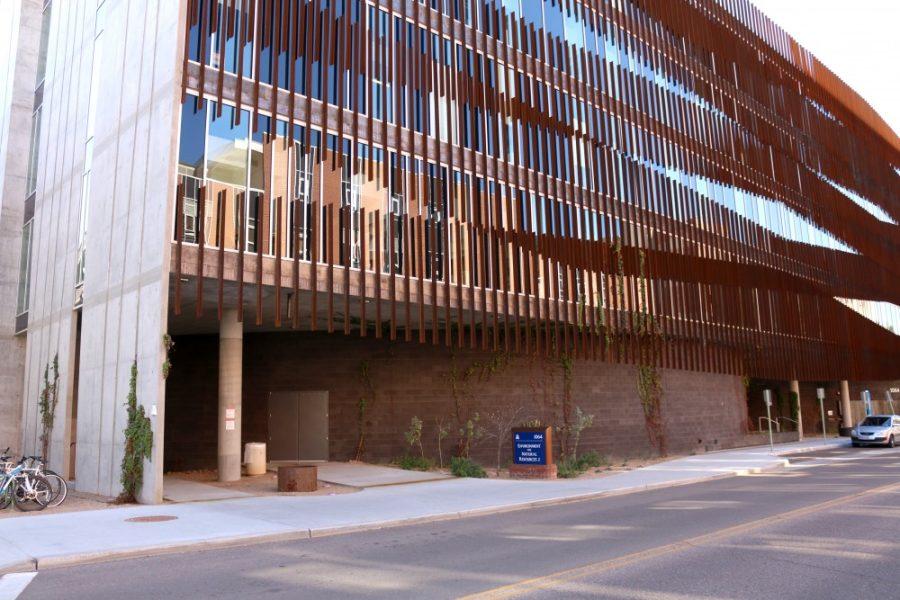Sewage doesn’t usually come up when discussing what to drink, but that’s a major part of a grant that has just been awarded to the UA.
The 100,000 Strong in the Americas is an initiative that was started by the Barack Obama administration back in 2011. The goal of the initiative is to provide further hemispheric mobility and to create a more culturally proficient workforce. In other words, make it easier for American professionals to live and work abroad.
This is the third time the UA has been directly awarded a grant from the 100k initiative. This most recent grant was won through a proposal to change how study abroad is organized with a focus on water reuse.
Most study abroad programs send students back and forth between two universities; however, this program will create a group of universities that have an equivalent and correlative curriculum. Universities grouped together by a program like this are called thematic clusters.
RELATED: Sustainability projects vie for a piece of $400,000 in Green Fund grant monies
“The main point of the project is to develop a new way of collaborating,” said Jim Field, assistant dean of Graduate Studies in the College of Engineering. “This is not just another exchange program.”
According to Field, thematic clusters are a new approach to study abroad and will allow students more maneuverability between universities in the cluster. Also, the degrees received in these programs could give students an advantage by allowing them to work in both countries.

The program is being designed to give students seeking their master’s degree in environmental sciences or engineering the option to do a two-year dual degree M.S., in which one year would be spent at the UA and the other spent abroad.
The thematic cluster created by this grant will establish partnerships between the UA and four universities in Latin America: Univeridade Federal de Pernambuco, Brazil, Univeridade Federal Minas Gerais, Brazil, Universidad de Concepción, Chile and Universidad Autónoma Nacional de México, Mexico.
The experience of studying abroad can be life-changing.
“When most students come back they are just completely transformed,” said Jill Calderon, senior program director for Study Abroad and Student Exchange. “I am always amazed at how much students mature and how their outlook has changed.”
Programs like this may be the future of study abroad. Thematic clusters could be a benefit for the participating universities and the students alike.
These clusters would create larger pools of academia and professionals working together on similar projects.

“I think the biggest impact this project will have is that it proposes another modality for doing student exchange,” Field said. “So this new approach will probably have the most lasting effect.”
Students interested in this program shouldn’t run over to study abroad just yet. There is a lot of paperwork the participating universities still need to file before they start recruiting students. The first group of four UA students isn’t expected to leave until the fall semester. Also worth noting, any student interested must be proficient at a sixth-grade level or better in Spanish or Portuguese.
RELATED: Global Next Door report encourages study abroad in Mexico
The focus of this thematic cluster will be around water recovery and reuse. The UA does a lot of research in this field and students participating in this program are expecting to leave a lasting, positive impact.
According to the Human Development Report, published in 2006, about two-thirds of the world’s population is projected to be living in an area with some level of water stress by 2025.
Water treatment facilities have filtered and treated sewage for some time and used it for agricultural and industrial uses. Despite this, even with new technologies, most localities do not add the extra step needed to make the water drinkable.
Many cities and counties in the United States are already processing sewage and turning it into drinkable water. Orange County, California, Wichita Falls, Texas and Clearwater, Florida are just a few examples that have begun drinking reclaimed water.
Due to water scarcity around the world, more countries are turning to advances in water recycling and reuse in order to safeguard enough potable water to sustain their needs.
Because of drought, mining, pollution and population growth, so-called “water-starved” cities are popping up. They are especially becoming a problem in dense areas.
“In Latin America, you have these large, mega-cities that develop really quickly and these cities are running out of water,” Field said. “So we hope through all this cooperation we can figure out an inexpensive, affordable way of managing and treating water so it can be reused completely.”








